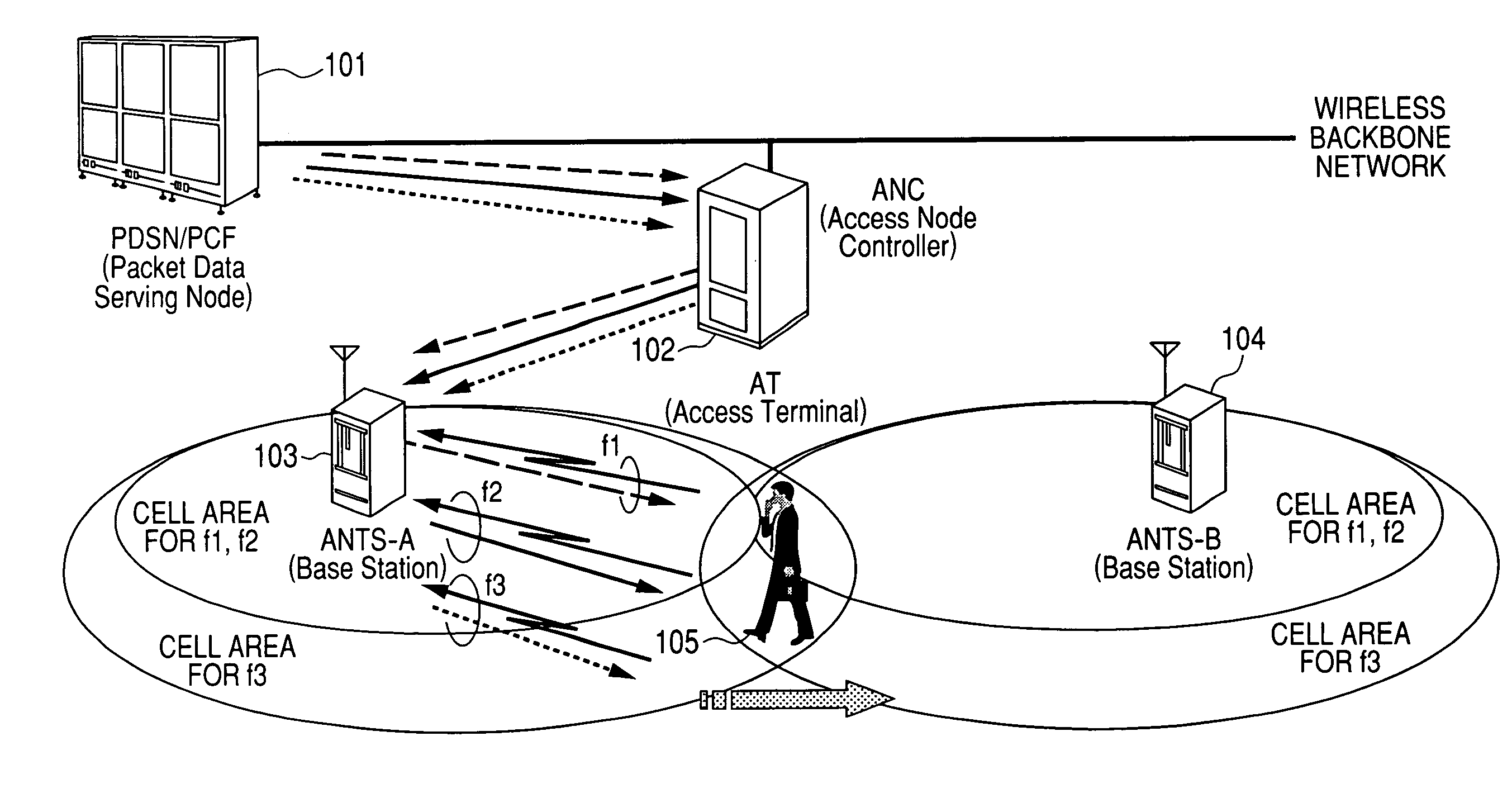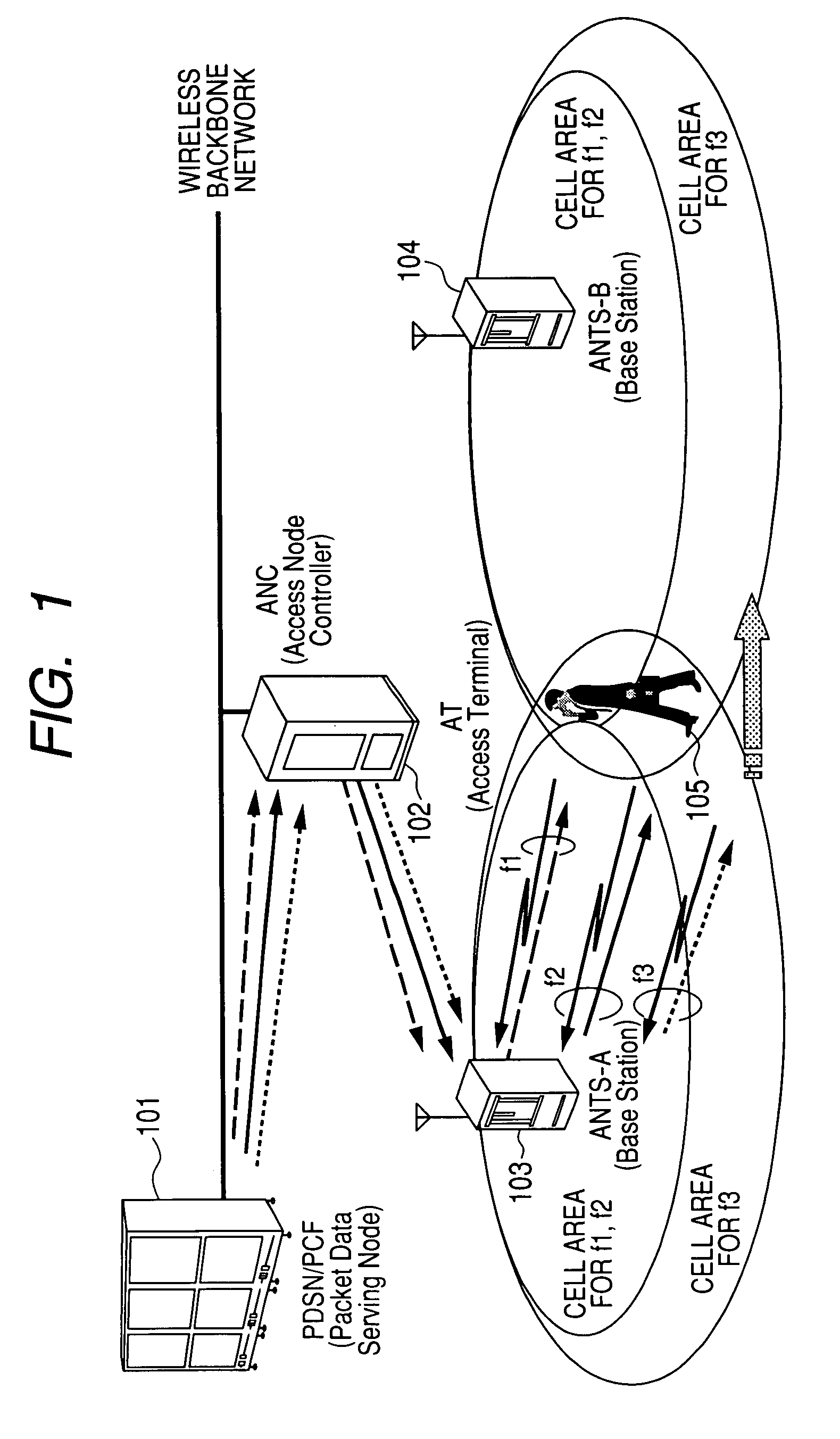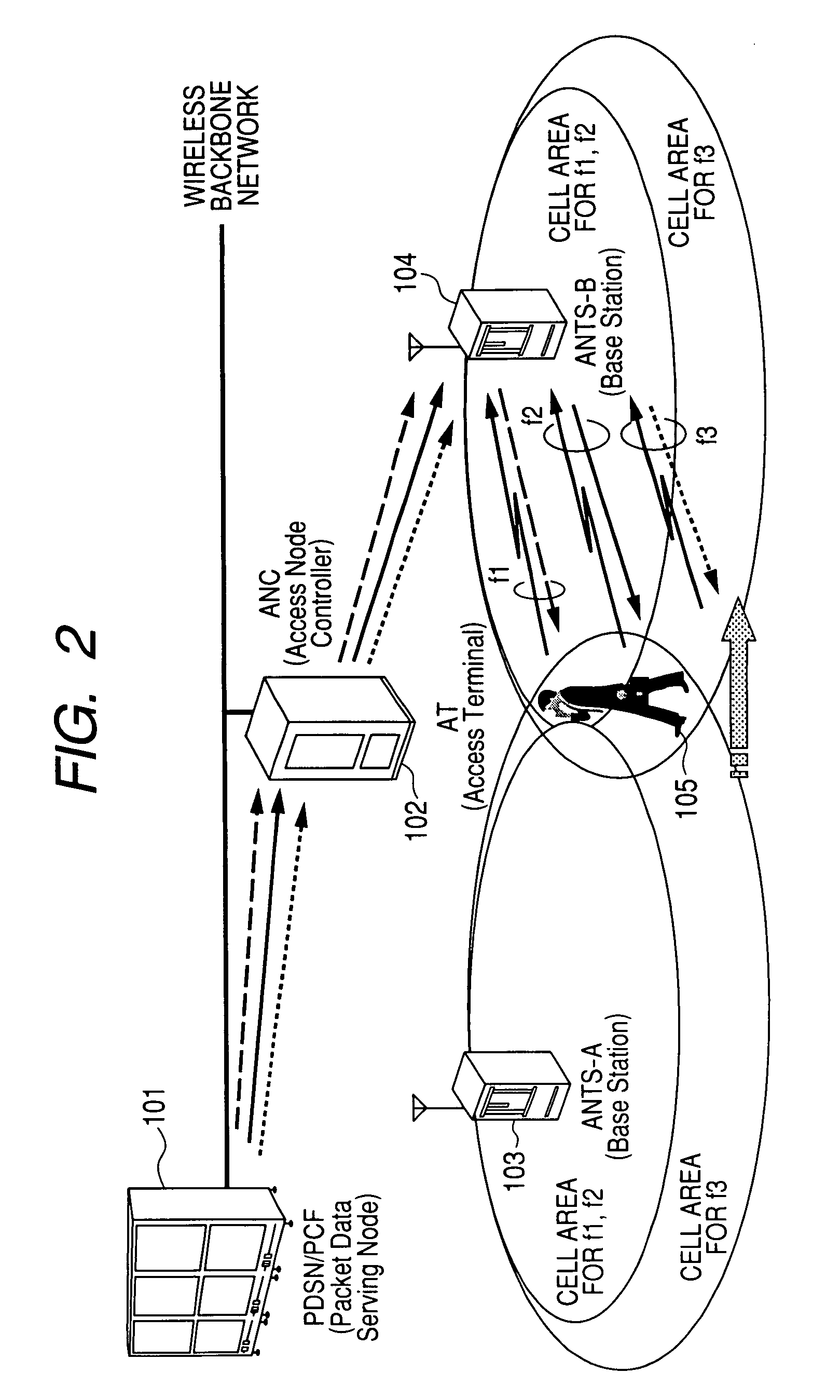Communication system using multiple wireless resources during a soft handoff
a communication system and wireless resource technology, applied in the field of wireless communication system terminals and base stations, can solve problems such as efficiency and stability, and achieve the effects of ensuring terminal mobility, reducing terminal processing load and wireless resource allocation time, and ensuring sufficient received strength in the terminal
- Summary
- Abstract
- Description
- Claims
- Application Information
AI Technical Summary
Benefits of technology
Problems solved by technology
Method used
Image
Examples
embodiment 1
[0036]A first embodiment of the present invention will now be described referring to FIG. 5. In this embodiment, a first example of a network configuration is shown in FIG. 3. In this embodiment, the salient points are that soft handoff termination is periodically determined, and stability is maintained while redundant soft handoff is avoided. To ensure above points, soft handoff is terminated on the basis of the following sequences.
Sequence (500)
[0037]It is assumed that soft handoff is performed at three frequencies (f1, f2, f3). The procedure for this will be described. Soft handoff at these frequencies may be performed at the same time, or soft handoff may be performed one by one according to the propagation situation. The Active Set of each terminal is managed for each carriers. This is in agreement with sequences (401)-(404) described in FIG. 4. The messages for f1-3 up to sequence (501) show that for carriers f1 and f2, since the receiving signal quality from ANTS-B is better,...
embodiment 2
[0056]FIG. 9 shows a flow chart when applying the first embodiment in the aforesaid second network configuration. In this embodiment, as in the first embodiment, a soft handoff termination judgment is made periodically, and a prolonged soft handoff state is avoided while maintaining stability.
[0057]Hence, soft handoff is terminated based on the following sequences.
Sequence (900)
[0058]It is assumed that there is a soft handoff state at three frequencies (f1, f2, f3). The procedure for this will now be described. These may be in a soft handoff state simultaneously, or may be in a soft handoff state one by one according to the transmission state. This is equivalent to the sequences (401)-(404) described in FIG. 4. The difference is that since ANC in FIG. 4 is divided into multiple parts, data is sent from PCF / PDSN to ANC-A which is the origin of soft handoff until soft handoff is completed, and when soft handoff is completed, the soft handoff target is changed to ANC-B. During soft han...
embodiment 3
[0063]A third embodiment will now be described referring to FIG. 7. In this embodiment, when a RouteUpdate message for soft handoff termination is received from the terminal for one carrier among multiple carriers (equivalent to sequence 405), the same soft handoff termination judgment is made as in the case of the first embodiment (701). For example, as shown by 500 of FIG. 5, when there is a soft handoff state for all the carriers f1-f3 and an instruction to terminate soft handoff for f1 is notified from the terminal side, it is instructed to terminate soft handoff also for the carriers f2, f3 which are still in the soft handoff state.
[0064]Also in this case, by shortening the soft handoff period, operating efficiency of wireless resources can be increased and terminal battery consumption can be reduced. As compared with the case of the first embodiment which periodically judges the feasibility of disconnection of ANTS-A continuously from soft handoff Start, the risk of “disconnec...
PUM
 Login to View More
Login to View More Abstract
Description
Claims
Application Information
 Login to View More
Login to View More - R&D
- Intellectual Property
- Life Sciences
- Materials
- Tech Scout
- Unparalleled Data Quality
- Higher Quality Content
- 60% Fewer Hallucinations
Browse by: Latest US Patents, China's latest patents, Technical Efficacy Thesaurus, Application Domain, Technology Topic, Popular Technical Reports.
© 2025 PatSnap. All rights reserved.Legal|Privacy policy|Modern Slavery Act Transparency Statement|Sitemap|About US| Contact US: help@patsnap.com



